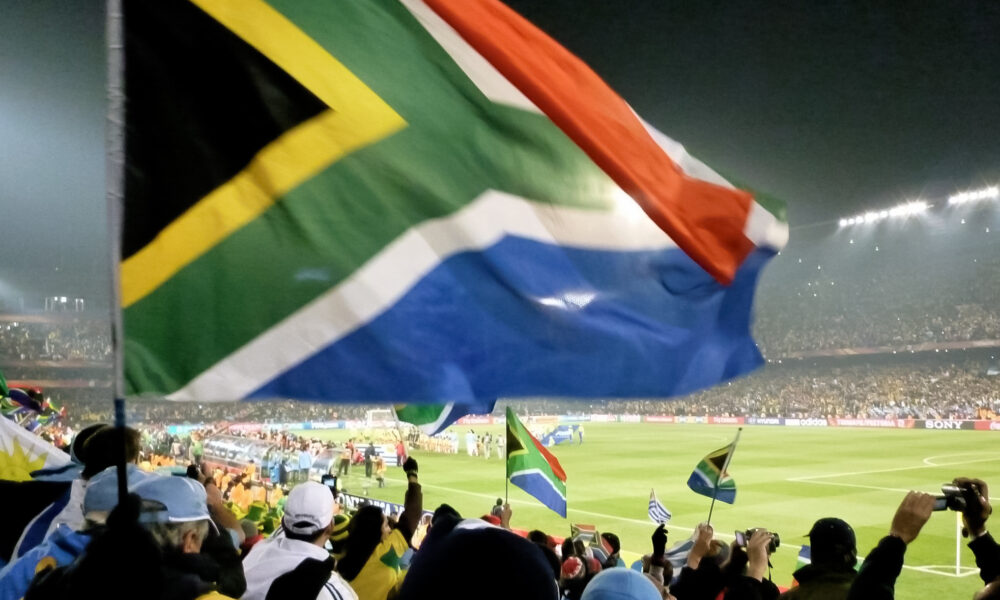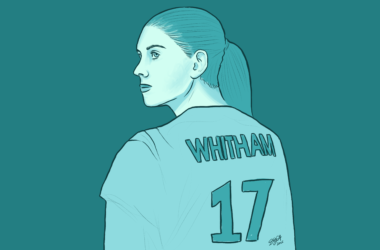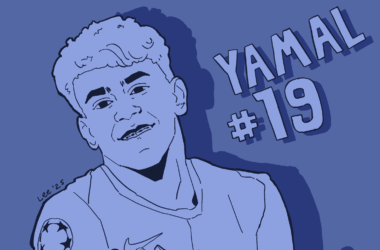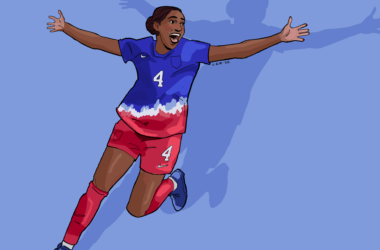Saturday’s quarterfinal victory over Cape Verde was not the first time that South Africa upended expectations in this Africa Cup of Nations. This was not even their first shock of this tournament; earlier they defeated World Cup semi-finalists Morocco en route to the upcoming semifinal against Nigeria on Feb. 7. The “Bafana Bafana,” nicknamed after a popular Zulu saying meaning “the lads,” are defying expectations and making a name for themselves along the way.
But, these mesmerizing performances are not what makes them truly unique. The South African national team, along with already-eliminated Namibia, is among the few teams whose players are all born in the country they represent. Furthermore, the majority of the squad plays in the South African Premier Division. While African teams such as Morocco and Algeria have found success by embracing their diasporas, there are concerns that relying on foreign-born players is “fast-tracking” success and undermining efforts to grow the African game on the continent.
Africa has been touted as an “under-valued” market, where European clubs can find stars at a fraction of the cost due to the strong footballing cultures and lack of formal professional infrastructures compared to the European and South American football landscapes—the historical sources of talent in world football. However, the growing presence of European club scouts on the continent does not signal the growth of the game: After all, the careers of George Weah, Jay-Jay Okocha, and Didier Drogba show that Africa has always had incredible footballing talent.
For African countries to achieve success on the international stage, the game needs to grow in Africa. There is a need for new solutions to propel this growth. Instead, the expansion of the European player markets into Africa reflects a hunger to commodify young talent as soon as possible and extract them from their domestic leagues—if they ever had a chance to play in these leagues at all. These opportunities are often life-changing for the players and their families. But the increased centralization of global football on Europe remains detrimental to the development of the African football landscape as a whole.
Every country that has won one or more (men’s) World Cups have been supported by a healthy, established domestic league. Players grow familiar with each other in their own distinct footballing cultures. It is not a coincidence that it has become increasingly difficult for South American countries to compete over the last 20 years (until 2022), despite producing arguably the best players of any continent. Over this time, the European leagues have become even more powerful and flooded with cash, and these same neocolonial dynamics reproduce themselves there. Even Lionel Messi famously joined Barcelona at just 13.
These dynamics are especially troubling when we consider the long history of European extraction from countries in the Global South. Why wouldn’t these patterns replicate themselves in football? Those who have power have not changed all that much since the wave of African independence.
The dream for a global landscape where football development is evenly distributed is both compelling and vitally important. Naturally, some leagues will be stronger than others—greatness attracts greatness. However, for African countries to achieve success, their domestic leagues must be worth staying in beyond the age of 18. In South Africa, salaries, player conditions, and football infrastructure are robust enough that players do not need to leave for better compensation in Europe. As billions of fans can attest, the football does not need to be the same quality as the Premier League to be worth watching.
Nine starters from the team that defeated Cape Verde in penalties play in the South African Premier Division, with eight playing for top-of-the-table Mamelodi Sundowns. The squad exhibits the kind of chemistry expected from players who compete with each other on a daily basis.
Nigeria has a compelling squad, with riveting stars who play for elite teams in Europe such as Victor Osimhen and Ademola Lookman. Despite this, on Wednesday, my heart and support will be behind South Africa, a team that models the potential of African football propelled by internal growth and investment, rather than centred on the needs of Europe’s “Super Leagues.”









